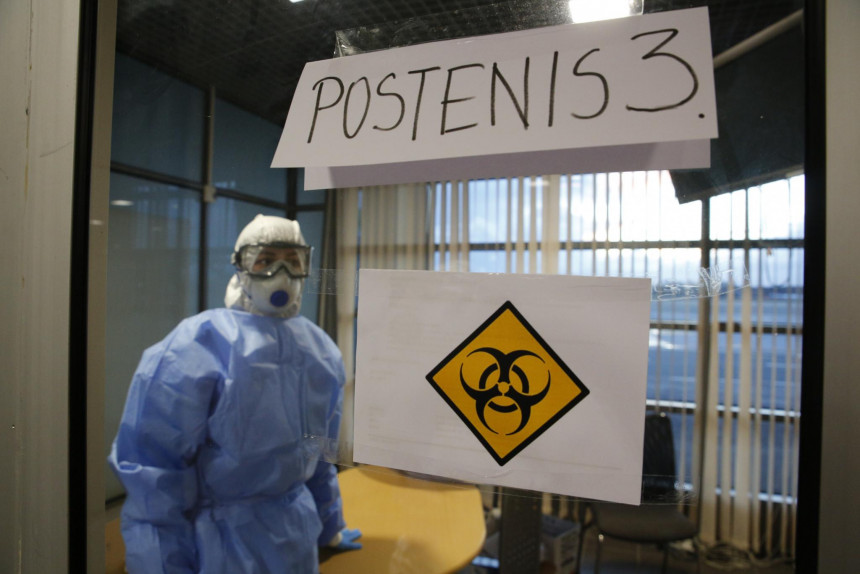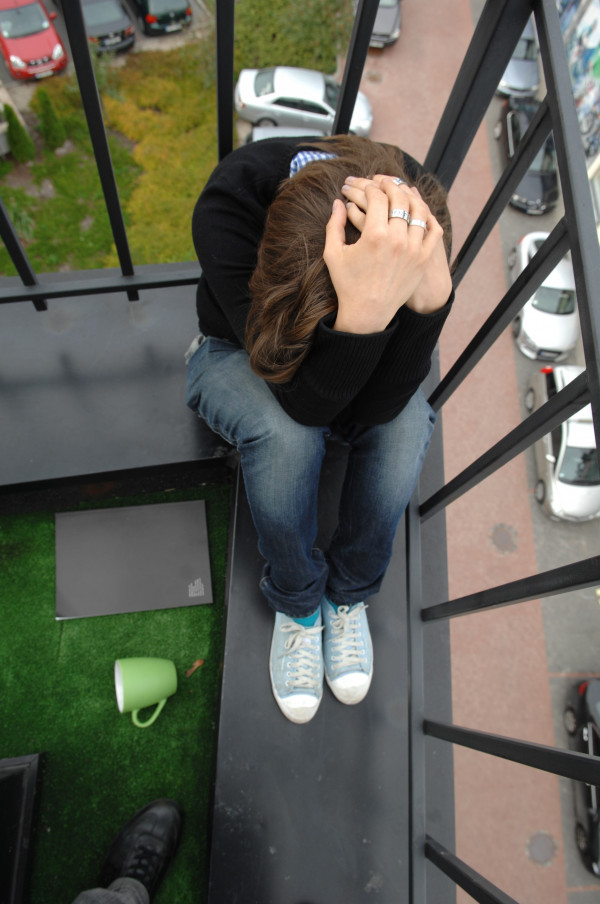Covid-19 exacerbates depression

The coronavirus affects not only a person's physical health and social relationships, but also mental health. This is confirmed both by research conducted in the world, as well as surveys and research in Latvia. The Health Index survey conducted during the Covid-19 epidemic shows that more than half of Latvians often feel anxious, depressed and irritated.
In turn, the experts of the Clinic of Psychosomatics and Psychotherapy of Riga Stradiņš University during the state of emergency started to study a little-explored field in Latvia - the mental health of medical staff. The first data show that during the state of emergency, anxiety symptoms were observed in a fifth of physicians and in an equal number depressive symptoms were observed. The data of the study in Latvia in comparison with the data in other countries of the world show that in Latvia the symptoms of depression in doctors were observed more often than in other countries, even compared to those countries where Covid-19 spread much more and even cost lives from medical staff.
At least one in ten experience depression

Although most people in Latvia feel happy, a large enough number of people and, unfortunately frequently enough, feel anxious or worried. In the health index (survey conducted by Mana Aptieka and Apotheka), a quarter - 26 percent - of the population admitted to feeling anxious, depressed (15 percent) or irritated (14 percent). One tenth of the population mentions depression as one of their health problems. Thus, at least half of the surveyed residents have to feel negative emotions on a daily basis, which are not always possible to control and overcome. Ilze Maksima, a psychotherapist at Vivendi Health Center, points out that depression is a diagnosis made by a doctor and in practice only a part of people are able to recognize its symptoms.
People tend to live with depression without even realizing it or refusing to accept that they are experiencing depression, so the prevalence of the disease could be even higher than the study shows,
says the psychotherapist.
The authors of the study have concluded that mental health is still a taboo subject for many, but recently it has been talked about more and more, and that allows people to become more open and ready for talking about their feelings. At the same time, the situation with the availability of specialists - doctors, psychologists, psychiatrists and psychotherapists - remains difficult, especially in rural areas.
Smiling depression
Although most women feel happy, a third of women surveyed say they feel anxious on a daily basis. Doctor Ilze Maksima explains that women often have hyperresponsibility about all areas of life, and this is one of the factors that makes them feel anxious. The Covid-19 epidemic places a particular burden, that comes not only with health issues, but also with various constraints and now also with distance learning. At the same time, the psychotherapist also points to such a term as “smiling or masked depression”, which is quite common in people's behavior all over the world, including in Latvia. "A person seems positive, smiling, successful at work and in private life and seems to cope with everyday tasks without problems, but internally he feels depressed, with rapidly depleting energy, possible sleep and eating disorders. Underneath such an outer mask are, at best, people who may have mild to moderate depression, however, if we talk about the “smiling depression,” the danger can come from a sudden, unpredictable suicide attempt that already corresponds to a severe form of depression. It is important to mention this, because the "smiling" people suffer and remain silent for a long time. This form of depression can be associated with identity problems, neurophysiological disorders and various social factors,” says the doctor. One of the solutions is to treat each other more carefully and, if you notice any of the mental health problems, to provide support and recommend to turn to a specialist.
Unrecognized problem - doctors with depression
Global studies of Covid-19 show that doctors and nurses have seen an increased incidence of symptoms of mental disorders, most commonly depression and anxiety. Doctors psychotherapists of the Clinic of Psychosomatics and Psychotherapy, Riga Stradiņš University during the emergency, began to study a little-explored field in Latvia - the mental health of medical staff. The first data show that during the state of emergency, anxiety symptoms were observed in 23.2 percent and depression symptoms in 22.8 percent of physicians, which means that one in four physicians had depressive symptoms. Laura Valaine, a resident psychiatrist at the clinic, said that Covid-19 has created a situation in which intense physical and emotional strain creates additional difficulties for physicians. The study involved doctors from hospitals, the Emergency Medical Service, the Institute of Stomatology and GP practices. The first round of the study involved 844 physicians, of whom 350 were physicians and 385 were nurses and physician assistants.
The results of the first round of the study show that depressive symptoms were found in 25 percent of cases, and anxiety symptoms in 17 percent of doctors. The first round was followed by the next - after three months - and the frequency of depressive symptoms had already increased, as did the frequency of anxiety symptoms. L. Valaine points out that medical staff are more likely to have symptoms of anxiety and depression than the general population, however, this study shows that doctors during Covid-19 have twice as high indicators. The researcher pointed to a finding that is noteworthy and alarming, namely that approximately 23 percent of physicians worldwide have symptoms of anxiety or depression during the Covid-19 pandemic, but these data are mostly from countries where the prevalence of Covid-19 was much higher than during the first wave in Latvia.
In Latvia, which was initially considered a success story, the indicators are the same or even more alarming than in the countries most affected by the disease,
said L. Valaine.
Doctors who are depressed or have symptoms of depression are at higher risk of medical errors. According to the results of the study, those who are the first to come into contact with the patient are at risk of mental disorders, i.e. both emergency medical services physicians and admission section physicians.
